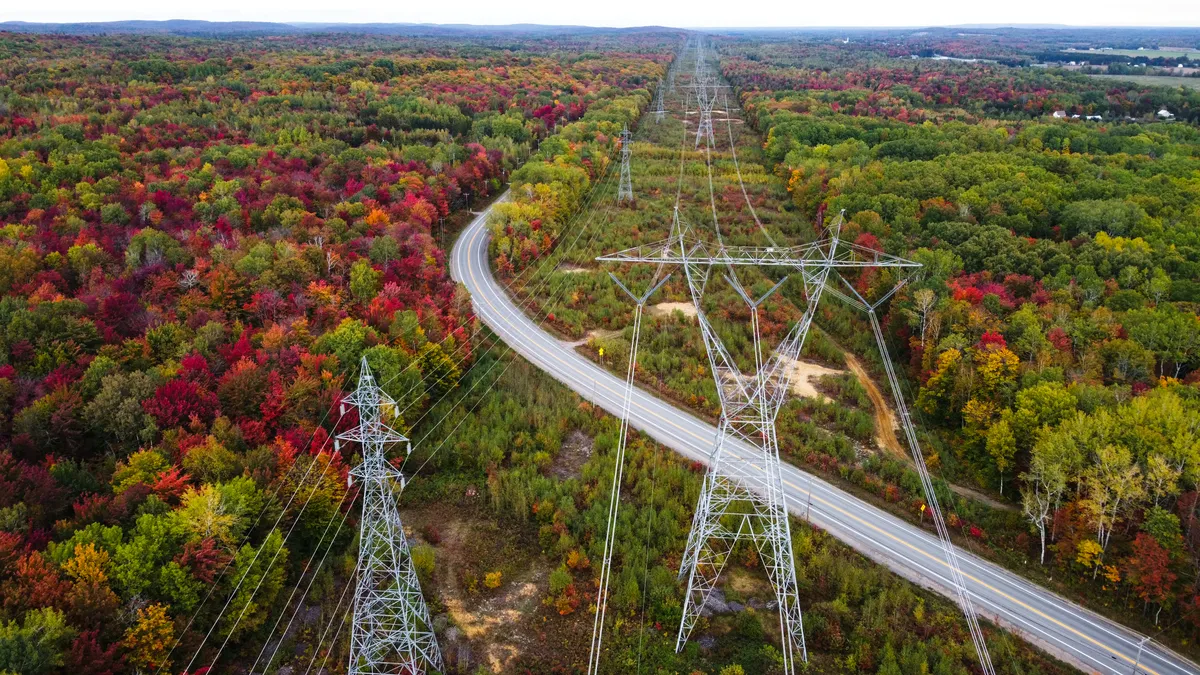The Federal Energy Regulatory Commission’s incentives for transmission developers are “way out of whack” and drive up ratepayer costs, FERC Commissioner Mark Christie said Tuesday at the agency’s monthly meeting.
Christie highlighted his concerns in two orders issued Tuesday: one approving a settlement agreement related to the never-built Potomac-Appalachian Transmission Highline, or PATH, project for which consumers paid about $250 million and the other allowing Exelon utilities to recover prudent costs related to $785 million in transmission projects if they are canceled before they are fully built.
“As this Commission considers other potential reforms related to regional transmission planning and development, it is imperative that incentives like the [Construction Work in Progress] Incentive, Abandoned Plant Incentive, and [regional transmission organization] participation adder are all revisited to ensure that all the costs and risks associated with transmission construction are not unfairly inflicted on consumers while transmission developers and owners stand to gain all the financial reward,” Christie said.
The PATH project offers lessons and warnings for long-term regional transmission planning driven by policy goals, the projects’ “substantial” costs and how FERC’s policies inflate those costs, Christie said in a statement with the order.
The 765-kV PATH project was set to run 275 miles from West Virginia through Virginia to Maryland. It was included in PJM’s 2007 regional transmission expansion plan and was designed to deliver coal-fired power to coastal areas.
Although the project’s owners — American Electric Power and Allegheny Energy — began immediately collecting project-related costs, it was never approved by the states it would have crossed and construction never started, Christie said.
“Consumers have paid roughly $250 million for a project that was never built nor found needed by a single state regulator,” he said. “Adding insult to consumers’ injury, that amount was caused and inflated by a whole host of Commission-approved transmission incentives.”
Some of those incentives include an extra 0.5% return on equity for being an RTO member, an extra 1.5% ROE to reflect risks related to the project and an “abandoned plant” incentive allowing the project’s owners to file for recovery of development and construction costs if the project is canceled for reasons beyond their control.
FERC’s order, “which appears to be a routine uncontested settlement – a ‘nothingburger,’” offers three key lessons, according to Christie.
First, the agency’s transmission incentives have been “ridiculously generous to transmission developers while inflicting an ongoing victimization of consumers,” he said.
Second, FERC’s formula rate structure — a process that gives transmission developers a presumption of prudence when they file for cost recovery — facilitated the “assault” on consumers, Christie said.
Third, the project shows “it is absolutely essential that state regulators have the authority to approve — or disapprove — the construction of these lines and how they are selected for regional cost allocation and what that cost allocation formula is, if their consumers are going to be hit with the costs,” he said.
In a separate statement, Christie lamented that FERC was giving Exelon utilities an abandonment incentive for $785 million in transmission upgrades that PJM has determined are needed to reliably handle the planned shutdown of Talen Energy’s 1,240-MW, coal-fired Brandon Shores power plant in Maryland.
Christie urged FERC to move forward with a proposed rulemaking that would revise its transmission incentive policies.
“Revisiting all these incentives is imperative at a time of rapidly rising customer power bills,” he said.














